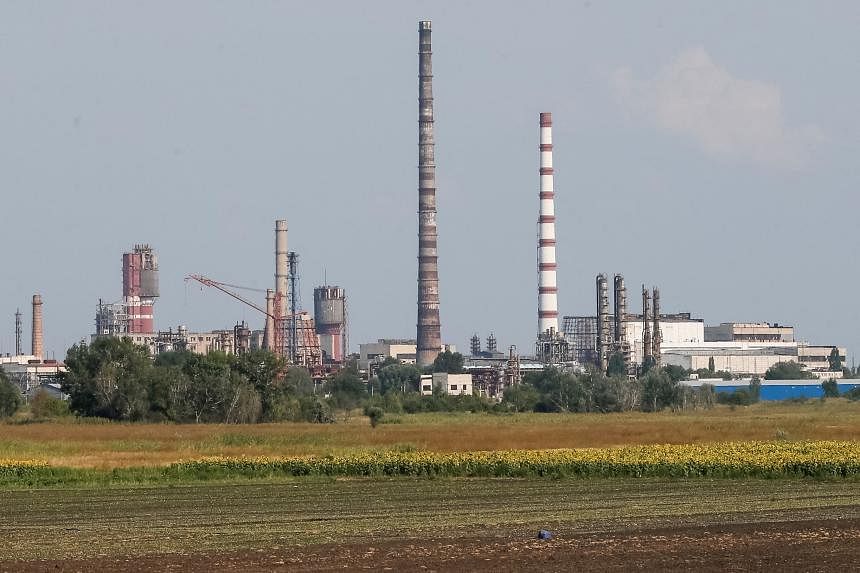KYIV (REUTERS) - A number of civilians are sheltering from Russian shelling under a chemical plant in the Ukrainian city of Sievierodonetsk and authorities fear it may still have stocks of dangerous materials, the regional governor told Reuters on Wednesday (June 1).
Russian forces entered the city, the largest still held by Ukraine in the eastern Luhansk region, late last week after weeks of shelling as they try to take full control of the industrial Donbas region.
Ukraine on Tuesday said a Russian air strike hit a nitric acid tank in Sievierodonetsk, releasing a large pink cloud.
"There are civilians there in bomb shelters, there are quite a few of them," Luhansk regional governor Serhiy Gaidai said of the Azot chemical plant, adding that there were "strong Soviet-era" bomb shelters under the factory.
"It's a privately-owned plant, we can't know 100 per cent if any chemicals are left," he said.
"We were assured that there were no (chemicals) left, but as we can see there are still some remnants," he said, referring to Tuesday's discharge.
Reuters could not independently confirm the account.
Gaidai said the plant was not likely to become the site of a weeks-long siege similar to the Azovstal steel complex in the southeastern city of Mariupol.
The Ukrainian military did not put up fortifications in the plant because of the chemical risk, he said.
"It will not be a second Azovstal as that had a huge underground city... which isn't there at Azot," he said.
Gaidai said 70 per cent of Sievierodonetsk was held by Russian forces, 10-15 per cent was a "grey zone" and the rest was held by Ukraine.
"We will defend the region to the last city, village, or resident of Luhansk region. We will do everything possible, and even the impossible, not to let the enemy advance further," he said.
He said some humanitarian supplies, including water and medicine, had been built up before the Russian attack but that Ukraine had lost contact with the city's hospital.
One bridge into Sievierodonetsk from the neighbouring city of Lysychansk had been destroyed and the other had been damaged but was still passable by light vehicles, Gaidai said.
Gaidai, who was born in Sievierodonetsk, said he did not want to let his emotions get the better of him while his home city was being destroyed.
"It is of course very painful. But if a surgeon cries during every surgery on a patient, then he is a bad doctor," he said.

